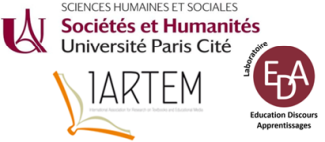The advent of Artificial Intelligence (AI) has brought about significant changes in academic writing, with the learning process and the role of the instructor undergoing profound transformations. This study seeks to uncover how AI's integration into academic writing is affecting individual expression, voice, and the epistemological aspects of the writing/thinking process. The research question we pose is: "In the era of AI, how can we guide the writing instructors of the future, when the act of writing can be performed by machines?"
Research Problem and Research Questions:
The advent of Artificial Intelligence (AI) has brought about significant changes in academic writing, with the learning process and the role of the instructor undergoing profound transformations. This study seeks to uncover how AI's integration into academic writing is affecting individual expression, voice, and the epistemological aspects of the writing/thinking process. The research question we pose is: "In the era of AI, how can we guide the writing instructors of the future, when the act of writing can be performed by machines?"
Methodology and Relevance:
Our study follows a longitudinal design, examining the academic writing experiences and reflections of two pairs of students at three points in their lives: in their final high school year in 2019, as students of higher education in 2023, and following the advent of AI in 2024. In-depth interviews, inspired by Interpretative Phenomenological Analysis (IPA), were conducted to gain a nuanced understanding of the participants' lived experiences and reflections.
Data and Analysis:
Interviews were subjected to thematic analysis, identifying patterns of thoughts and experiences across the dataset. The data was coded with regards to how the participants have been prepared for life and academic writing in higher education in an uncertain future, and presented back to them in the form of a model, which was then discussed with them.
Results:
Preliminary results indicate a significant shift in participant's academic writing experiences and their perceptions of their identities as writers. While AI has enhanced efficiency and accuracy, it also presents challenges to creative self-expression, the sense of advocacy, and the epistemological aspects of writing and thinking processes. These findings have crucial implications for the design of learning material for teacher students, the writing instructors of the future, suggesting strategies are needed that maintain creative expression, critical thinking, embodiment and individual voice in an AI-dominated academic landscape. The model which was the result of the analysis may serve as a tool for further discussions of how teacher identity may be understood and developed in an age of AI.
References:
- Brinkmann, S. (2014). Doing Without Data. Qualitative Inquiry, 20(6), 720-725.
- Creely, E. (2023). Conceiving Creativity and Learning in a World of Artificial Intelligence: A Thinking Model. In D. Henriksen & P. Mishra (Eds.), (Vol. 7, pp. 35-50). Switzerland: Springer International Publishing AG.
- Henriksen, D., & Mishra, P. (2023). Creative provocations: speculations on the future of creativity, technology and learning (1st ed. 2022. ed.). Springer.
- Polkinghorne, D. E. (1992). Postmodern epistemology of practice. In S. Kvale (Ed.), Psychology and postmodernism Inquiries in social construction. Sage Publications.
- Rogers, C. R., & Freiberg, H. J. (1994). Freedom to learn (3rd ed. ed.). Charles E. Merrill.
- Poster

 PDF version
PDF version

